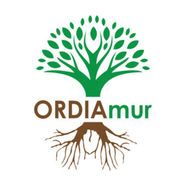Three new mycoviruses identified in the apple replant disease (ARD)-associated fungus Rugonectria rugulosa (2022.0)
Pielhop T., Popp C., Knierim D., Margaria P., Maiß E.
Virus Genes, 58 (5), 423-435
doi:10.1007/s11262-022-01924-6
Abstract
AbstractIn this study, three new mycoviruses were identified co-infecting the apple replant disease (ARD)-associated root endophyte Rugonectria rugulosa. After dsRNA extraction, six viral fragments were visualized. Four fragments belong to a quadrivirus, which has a genome size of 17,166 bp. Each of the fragments of this quadrivirus has a single ORF encoding a protein. Two of these proteins are coat protein subunits, one ORF encodes the RdRp, and one protein has an unknown function. This virus was tentatively named rugonectria rugulosa quadrivirus 1 (RrQV1) as a member of the proposed new species Quadrivirus rugonectria. Another fragment represents the dsRNA intermediate form of a + ssRNA mitovirus with a genome size of 2410 nt. This virus encodes an RdRp and is tentatively called rugonectria rugulosa mitovirus 1 (RrMV1). RrMV1 is suggested as a member of a new species with the proposed name Mitovirus rugonectria. The sixth fragment belongs to the genome of an unclassified dsRNA virus tentatively called rugonectria rugulosa dsRNA virus 1 (RrV1). The monopartite dsRNA genome of RrV1 has a length of 8964 bp and contains two ORFs encoding a structure/gag protein and an RdRp. Full genomic sequences were determined and the genome structure as well as molecular properties are presented. After phylogenetic studies and sequence identity analyses, all three isolates are proposed as new mycoviruses. The results help to improve the understanding of the complexity of the factors involved in ARD and support the interest in mycoviral research. Subsequent analyses need to focus on the impact of mycoviruses on the biology and pathogenicity of ARD-associated fungi. The results of such studies could contribute to the development of mitigation strategies against the disease.